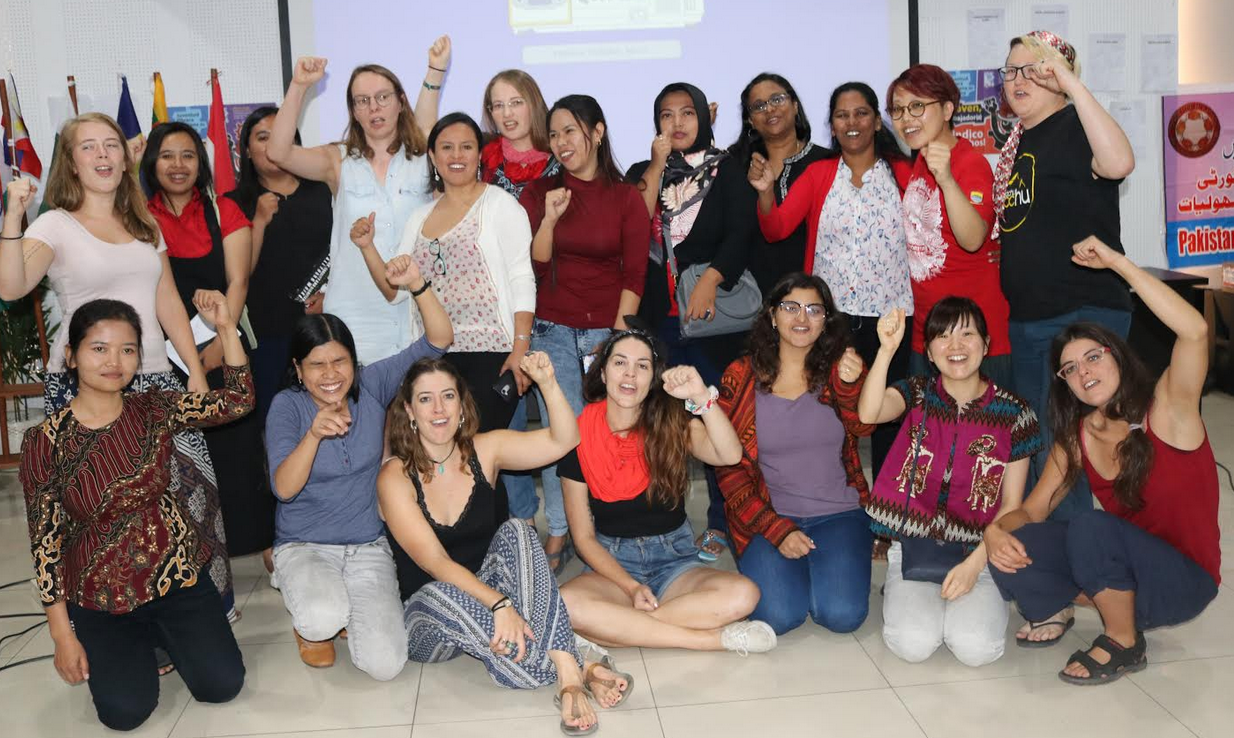
109 years ago, the Second International Conference of Women was held in Copenhagen, the demand for universal suffrage for all women was reiterated and, at the proposal of Clara Zetkin, 8 March was proclaimed International Women's Day. In the late eighteenth and early nineteenth centuries, the labour movement maintained a traditional patriarchal position on women's equality and demands. It was in the middle of the nineteenth century when the women's movements became stronger, with the struggle for women's suffrage, the demand for equality, the denunciation of social, family and labour oppression.
I am a young Nicaraguan, I am 28 years old. I have no children and I live in my parents' house. “I’m currently employed at the Hansae export-processing zone in Nicaragua in a garment factory. I have been working there as a machine operator for 1 year. My work schedule is from 7 am to 5 pm, with a 30-minute break to have lunch.
In Nicaragua, gender violence is a daily reality. The number of femicide cases is increasing. “We are being killed" in our homes. We are educated to assume a role of domestic, we assume responsibilities that society imposes on us culturally for being women: "cooking, washing, raising children, cleaning, and so on.” Every day, when I commute from home to work, I am subjected to sexual harassment in the street. Society sees this practice as normal and harmless, though it is a form of gender-based violence, and I really feel I’m harassed when walking in public.
Sometimes I suffer psychological assaults at my workplace, including very strong language, shouts and insults because of my being a woman. Somehow, we remain silent and do not demand respect because we want to keep our job. The violence we experience is horizontal and vertical, horizontal because it happens with other male workers in the same jobs who harass us, and vertical when it comes from a superior as an exercise of power and machismo over us, giving us more workload for equal pay. They see us as merchandise, as an object. Schedules do not allow us to study. And if we did study, they don't give us the opportunity to move up or occupy jobs in better conditions.
With my participation in the YCW Nicaragua, I as a woman fight to have training, to be able to organize with other young women who live the same reality to stand up for our dignity as women and for respect for all women.
109 years ago, the Second International Conference of Women was held in Copenhagen, the demand for universal suffrage for all women was reiterated and, at the proposal of Clara Zetkin, 8 March was proclaimed International Women's Day. In the late eighteenth and early nineteenth centuries, the labour movement maintained a traditional patriarchal position on women's equality and demands. It was in the middle of the nineteenth century when the women's movements became stronger, with the struggle for women's suffrage, the demand for equality, the denunciation of social, family and labour oppression.
Nevertheless, this young woman’s testimony does not just represent a point of view; it describes a world-wide reality of inequality, discrimination and violence. There are gender inequalities at work, in the families and in the whole society. At work, there is a gender-based distribution of jobs, and the jobs absorbing more female workers often pay lower wages. The division of the labour market is strongly linked to pre-concepts related to gender. Also, doing the same work, female workers face lower salaries all over the world. According to the ILO, women earn around 20% less than men.
[1] It is less frequent for women to get promoted and to access higher positions.
The fact that domestic work is more associated to women all over the world has consequences on professional life. In many cases women are forced to combine domestic work (socially invisible) with highly flexible jobs that do not allow their inclusion in social security systems. Pregnancy is considered by employers to be a serious problem. We see cases of pregnant women losing their jobs all over the world. Moreover, the possibility for a woman to become pregnant is already a reason for employers to prefer hiring men.
As a consequence, unemployment among women is higher than among men in several countries, and there is inequality in the duration of contracts.
Roots of the reality in the labor market lie in society and in perceptions towards people’s genders. It also impacts our education and the different position men and women have in families. In some parts of the world, women need to ask permission from their husbands to work or join a social activity.
In social movements today, struggles and training on gender equality and equity are promoted by many organizations. Nevertheless, even in those movements and organizations, we face inequality.
Young workers are annoyed and enraged to see all these injustices. These injustices contradict the gospel. They go against the principles promoted by the YCW. We want equality for human beings regardless of their gender identity, ethnicity, nation or skin colour. Young women and men must be freed from sexual, mental and psychological harassment.
Young workers, with the capacity they have, must have equal access to basic needs such as housing, food, clothes, education and work, which will enable each human being to enjoy justice and peace without any discrimination.
Encouraged by this conviction and our values, we continue to act and to fight, locally and internationally, for gender equality. For equality that does not depend on the origin, gender, skin colour, religion or country. For dignified life that includes just and decent salaries, equal chances, and equality in education.
To put it in a nutshell, we act for and demand Dignity, Equality and Just work for all young workers!
[1] IlO 2018d, quoted after Global commission on the Future of Work: Work for a brighter future, Geneva 2019, p. 21.


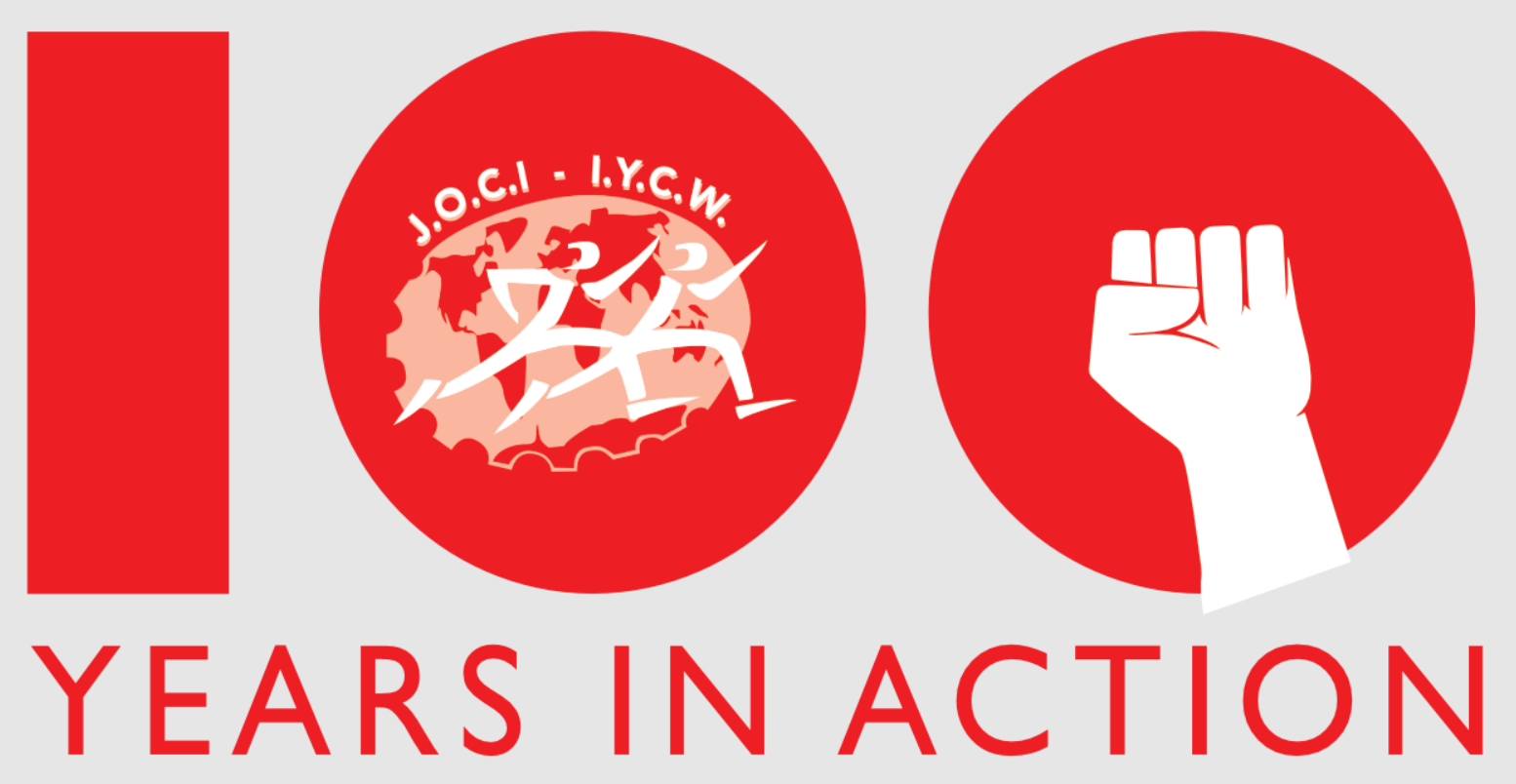
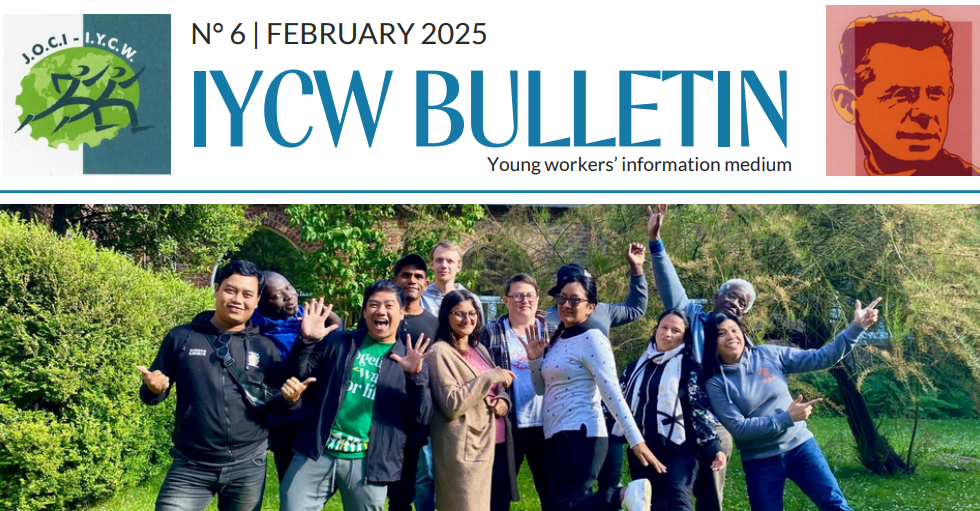

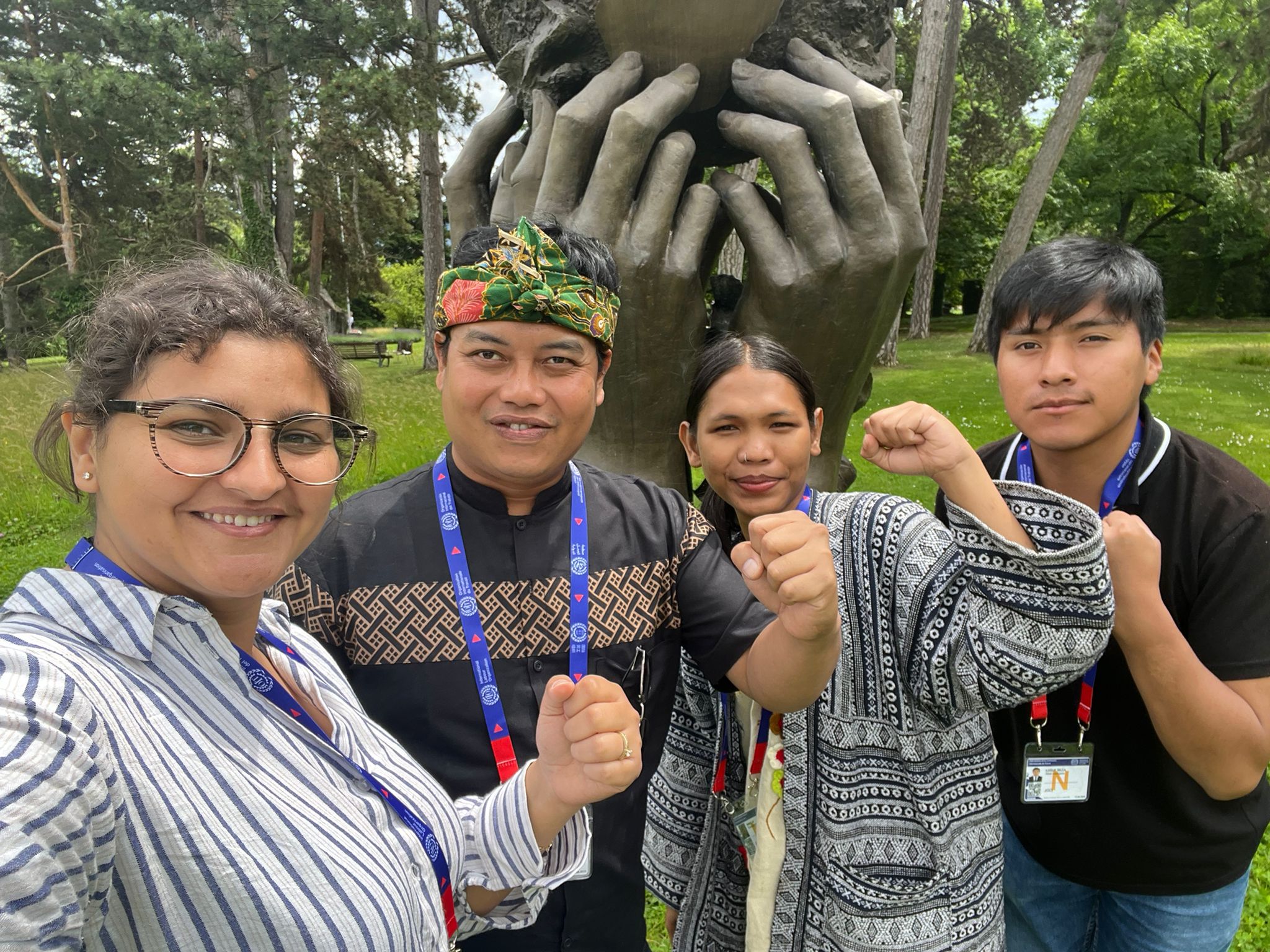
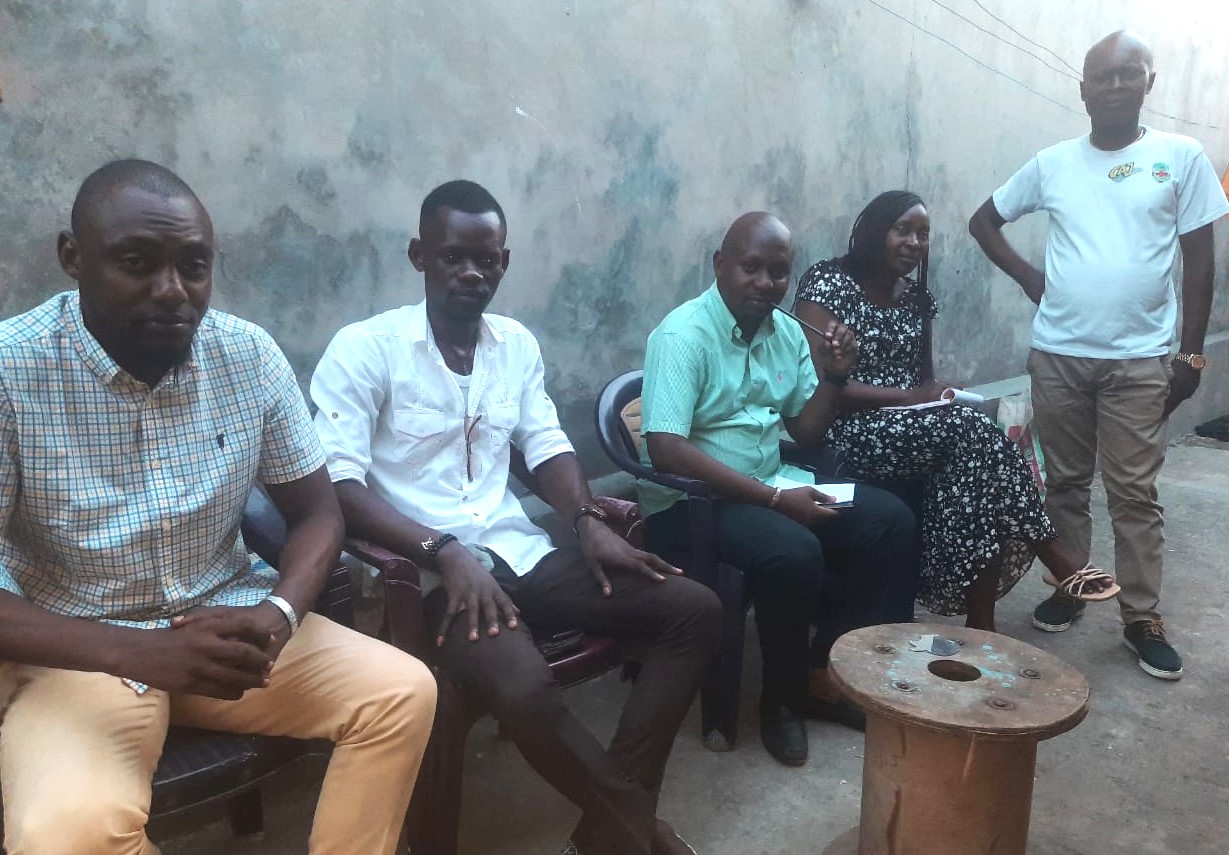

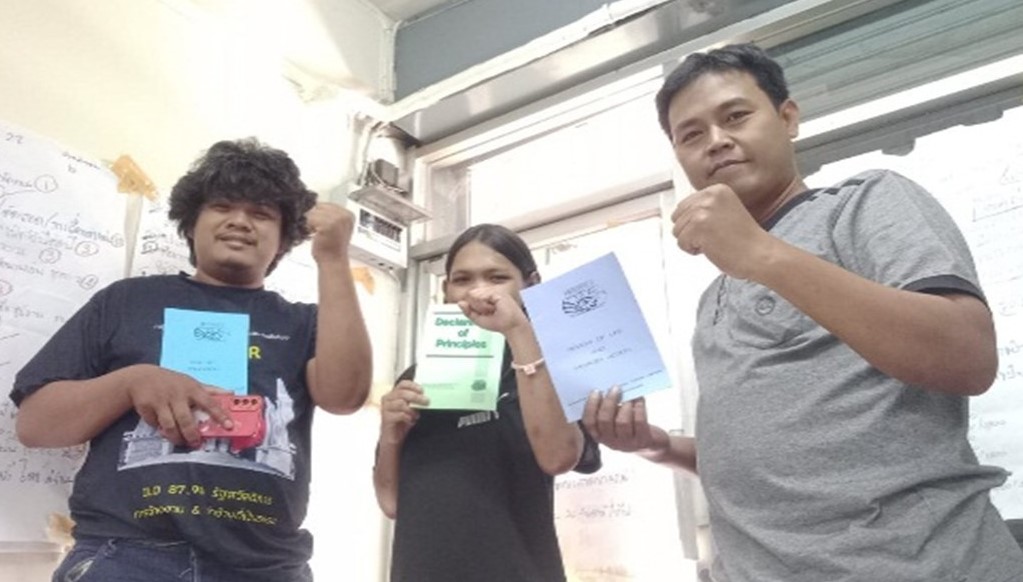
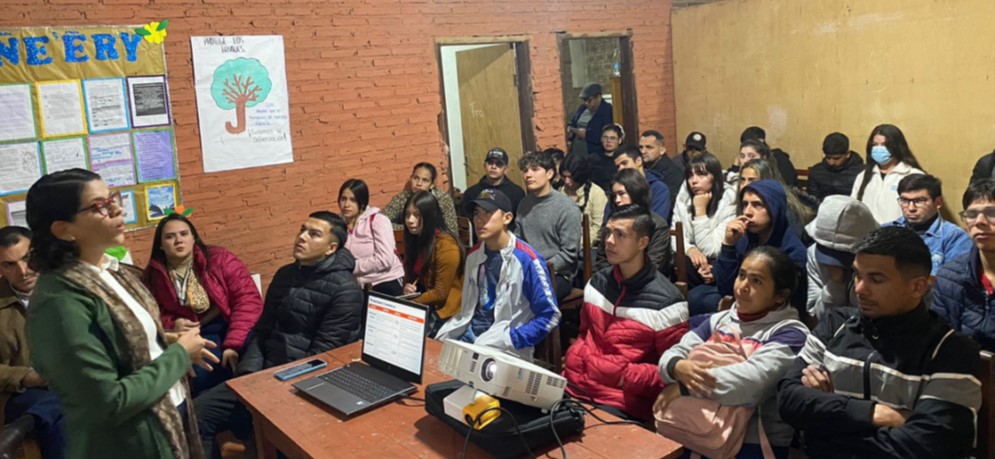
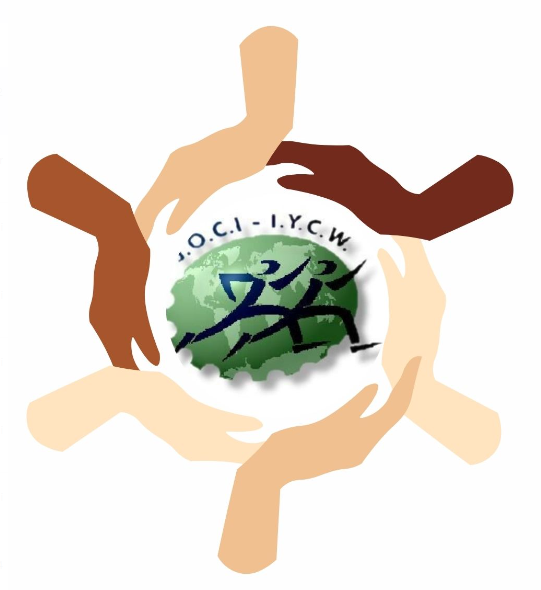

 English
English  Español
Español  Français
Français